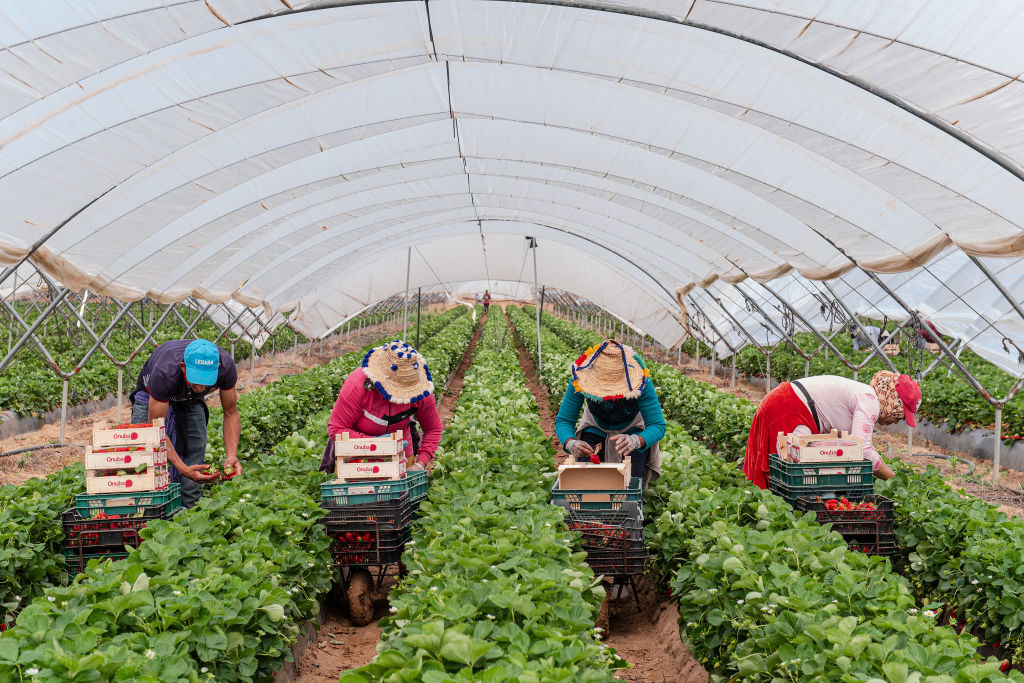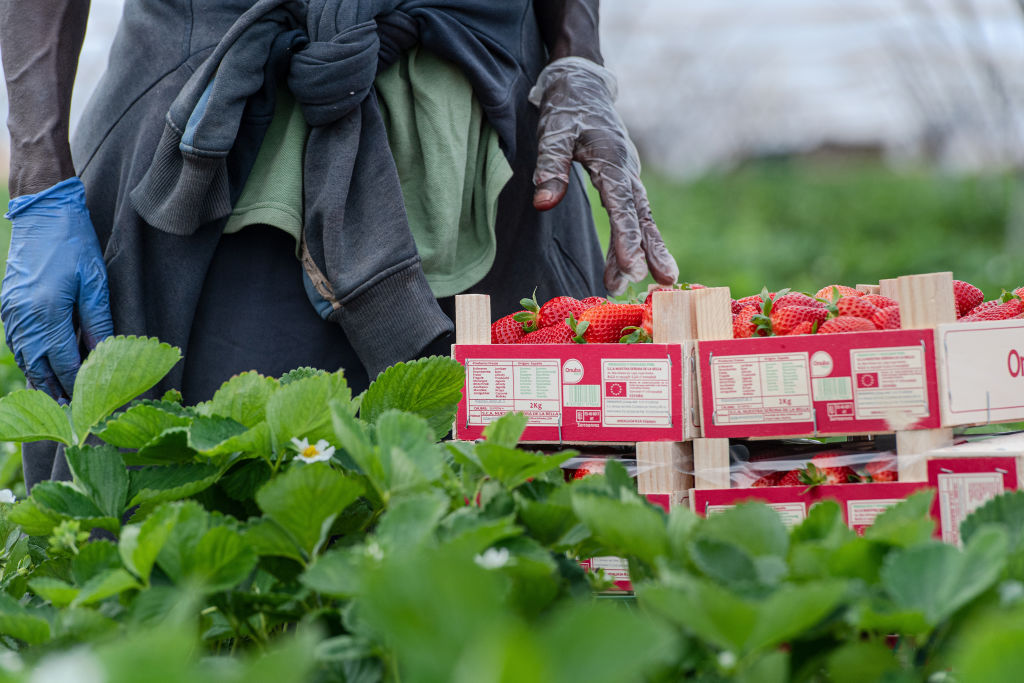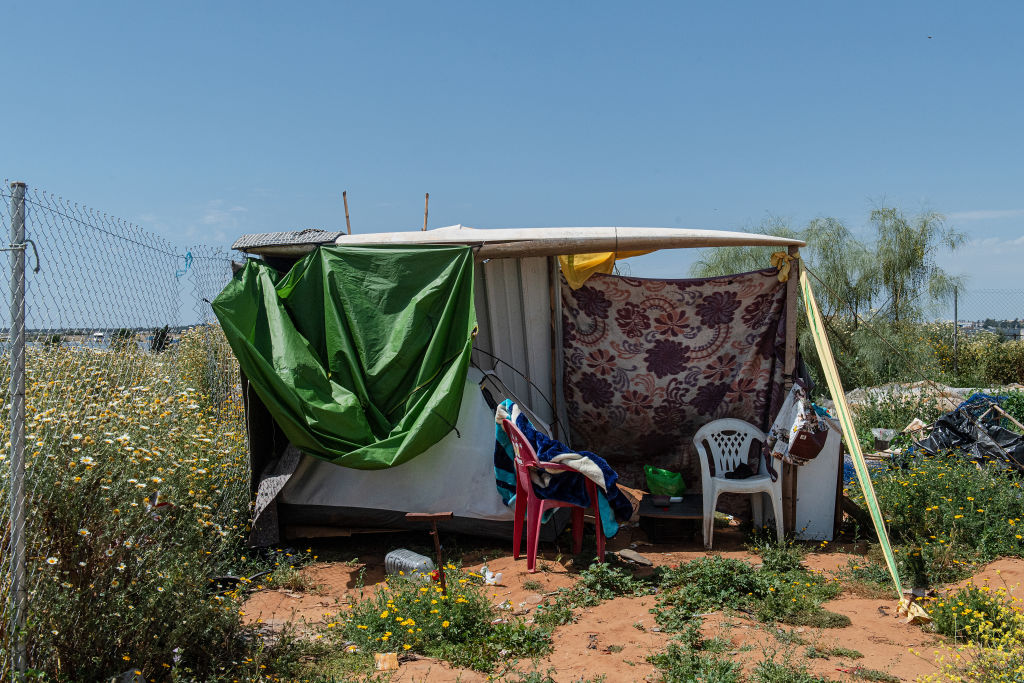Invisible Workers
Modern slavery conditions for migrant workers on EU's farms at height of pandemic
The arrival of the pandemic saw the European Union pour money into its agri-food businesses and suspend farm inspections. Advance payments were released from the €58 billion pool of subsidies under the Common Agricultural Policy (CAP) and state aid rules were relaxed to ensure no disruption to food supplies during the Covid crisis.
But CAP has more to say about the treatment of rivers and dairy cattle than it does the tens of thousands of mainly migrant farmworkers who harvest cheap plums, peaches, strawberries and asparagus for the same Europeans who were told to stay home and stay safe.
METHODS
“Invisible Workers” is a months-long joint investigation led by Lighthouse Reports with Der Spiegel, Mediapart, Euronews, the Guardian, Follow the Money, EfSyn and the Investigative Reporting Project Italy, featuring reporting from Germany, France, Belgium, Italy, the Netherlands, Greece, Spain and Romania. It uncovers how migrant farmworkers enticed to harvest Europe’s fields at the height of the pandemic were cheated of wages; forced to work long, undeclared hours; and in some cases fired and turned out empty-handed onto the streets during lockdown.
Using a blend of traditional reporting and open source investigative methods “Invisible Workers” documents how vulnerable people, desperate for money, were made to repay flights they were told were free; were left unable to socially distance and left to buy their own masks or gloves; and housed in appalling conditions from slums to tractor barns which they were then charged for by employers who receive hundreds of thousands of euros in public money.
STORYLINES
From strawberry fields in Germany (Der Spiegel) to raspberry greenhouses in the Netherlands (FtM), to organic carrots in France (Mediapart) and berries in Italy (IRPI), Greece and Spain, workers who risked their lives in the pandemic were systematically underpaid, exploited and put at risk (Euronews) on farms that received COVID-related emergency subsidies.
Invisibility in Brussels has meant no voice in shaping CAP (Mediapart) and no seat at the table in the current round of negotiations due to conclude in 2021. In Greece, invsibility means undocumented workers who don’t know who they work for or appear on company books (EfSYN), where their costs are written off as fertiliser. In the Netherlands we uncover the loophole, agreed between farms and unions that enables them to evade “equal pay for equal work” with migrant employees. In Spain we find migrants forced to work under assumed names (Euronews) to earn social security credits for Spanish citizens.
In all instances invisibility made it harder for migrant workers to speak out. The few unemployed Europeans who were persuaded by public campaigns to switch to field work during COVID-19 often emerged as whistleblowers. Maria, a Spanish hotel worker who tried fruit-picking in the fields of Huelva in southern Spain and was appalled at the culture of fear that she found: “If you’re at the bottom of the list and they need to fire people, it’s going to be you.”
To keep up to date with Lighthouse investigations sign up for our monthly newsletter
The Impact
Our investigations don’t end when we publish a story with media partners. Reaching big public audiences is an important step but these investigations have an after life which we both track and take part in. Our work can lead to swift results from court cases to resignations, it can also have a slow-burn impact from public campaigns to political debates or community actions. Where appropriate we want to be part of the conversations that investigative journalism contributes to and to make a difference on the topics we cover. Check back here in the coming months for an update on how this work is having an impact.




